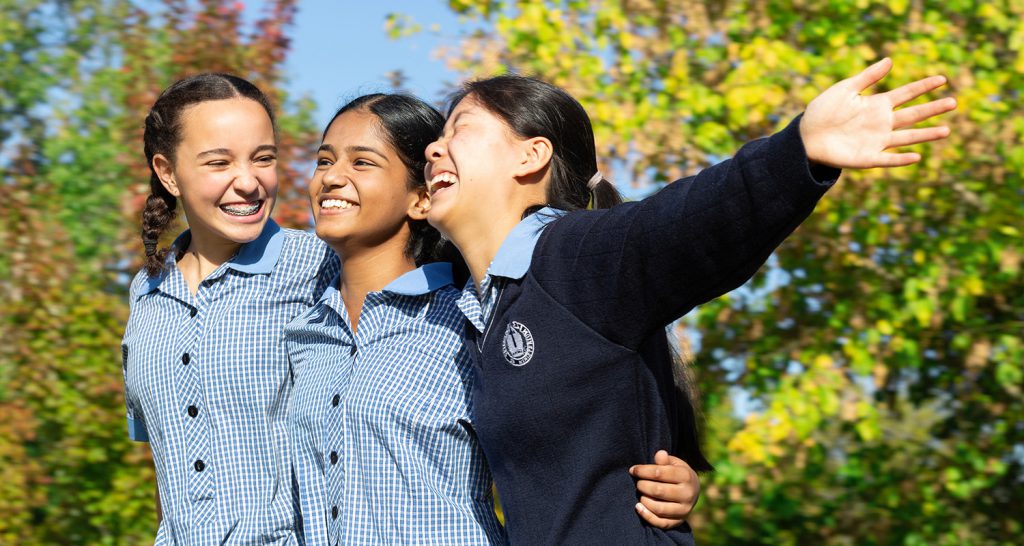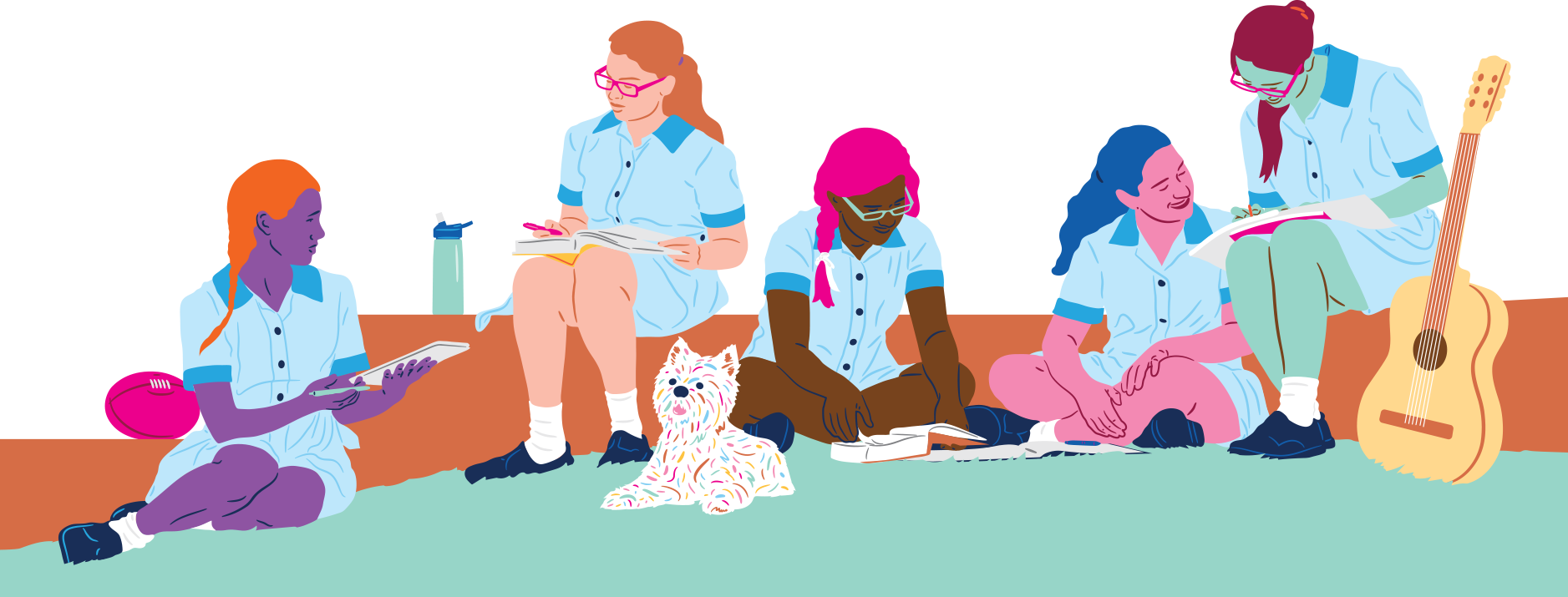From award-winning performances and work experience reflections to immersive excursions and innovative STEM challenges, our secondary students embraced every opportunity this term.

It is probably not surprising to hear that one of the things that I was looking forward to on my leave was to have more quality time to think and explore ideas. Considering the pace of our everyday life it sounds like a luxury – but should it be different, and why is it important?
At our recent National Anglican Schools Australia (ASA) conference, Julia Baird was one of the keynote speakers. Throughout the lockdowns in COVID, her book Phosphorescence was a constant source of inspiration for me, particularly through her focus in finding awe and wonder in the everyday during a challenging time.
At the ASA conference Julia again emphasised the importance of awe and wonder in our lives, and as educators ensuring opportunities for our students in their learning. They bring the opportunity to think deeply, creatively and with empathy, as well as energising and sustaining us. Acknowledging the complexity of our lives, including those of many children, Julia spoke about the importance of connection and hope in our lives, and her belief that schools show faith in action.
The importance of the natural environment and of the practice of really paying attention to the world around us, to the little things and those that are vast, was also highlighted in Julia’s presentation. As was the importance of purpose in our lives. In a world of connectedness through technology and particularly social media, there is also the possibility that we focus on a world of individual personas without the clarity of interconnectedness, and the wonder of being a part of something much greater than ‘main characters’ which we often see on social media or in the media.
One of the keynote speakers at the International Coalition of Girls Schools (ICGS) conference that I attended in Cleveland, Ohio was journalist Manoush Zomorodi, a renowned US podcast host who has a passion to understand the impact of technology in our lives. Her areas of interest include information overload, digital clutter, sexting and the eavesdropping capabilities of our devices.
In her book Bored and Brilliant, Manoush explored the outcomes of a challenge in 2015 that included over 20,000 people in the USA disconnecting from their phones for a week to help them understand their relationship with their phone. This interest stemmed from her own use of technology and work with neuroscientists and cognitive psychologists about the impact of our constant connection to our devices, and in particular phones.
It is not uncommon when we are ‘relaxing’ to still be checking our phones. This can include times when we are watching TV, talking to others, eating meals… and the list goes on. What we are actually doing is multi-tasking; rapidly switching from one task to another. It’s an attention and energy consuming practice. The amount of time people spend checking devices whether it be social media, information seeking or emails each day is significant. This can also increase when we are stressed or when we are struggling to sleep.
Conversely, if we can detach and be present in the moment to interact more deeply with others or to daydream or wonder, our brain is able to operate in a more ‘default’ mode. This is when we do our most original thinking and autobiographical planning, which includes problem solving and goal setting. It enables better conditions to be creative.
We all know that there are thousands of employees of many tech companies who are designing platforms to get a greater portion of our attention (and often our sleep). If we are not intentional about how we are using our devices, they will be. As is our practice, we will continue to plan for and manage device use at school.
Our requirement of mobile phones in lockers during the school day that commenced in 2017 is being re-launched this Semester. To assist students to understand why, information will be shared reminding them of the importance of detaching from phones during the day for health, cognitive and social reasons.
I also encourage you to discuss use of phones further at home. It is not just an issue for young people, but for many adults as well.
During my leave I transferred my social media accounts to my iPad and removed them from my phone, thereby reducing the temptation to check them. Just this practice has continued to give me more space and time, and I have prioritised the time regained to engage in the things that I know spark awe and wonder, and allow me to be more creative.
With best wishes,
Debbie Dunwoody
Principal
From award-winning performances and work experience reflections to immersive excursions and innovative STEM challenges, our secondary students embraced every opportunity this term.
Curiosity, creativity and care have shaped Term 2 at the Junior School with highlights including student-led sustainability initiatives, national debating success and inspiring community connections.
Celebrating 105 years, rallying behind fundraising efforts, and supporting student growth – ended by showcasing the strength and spirit of our Camberwell Girls community.
This edition, Mrs Dunwoody reflects on a term filled with learning, leadership, and community connection, including milestone events and exciting student initiatives.
We acknowledge and pay respect to the Wurundjeri people as the traditional custodians of the land on which the school is situated.
Secondary School / Administration
2 Torrington Street, Canterbury
Victoria 3126 Australia
T +61 3 9813 1166
F +61 3 9882 9248
camgram@cggs.vic.edu.au
Junior School / Ormiston

